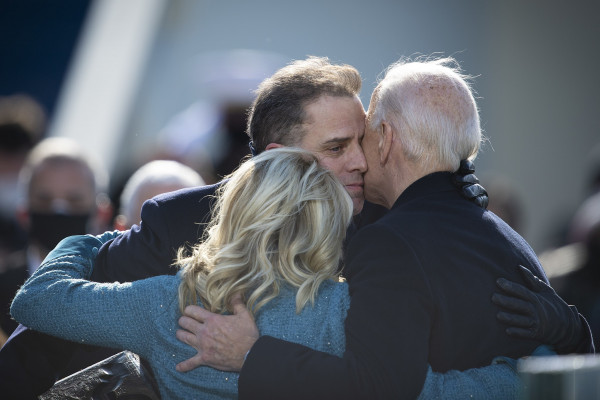Hunter Biden's Plea Deal: A Protective Shield for the President?

In a surprising turn of events, the Justice Department's proposed plea deal for Hunter Biden, son of President Joe Biden, has been met with skepticism and ultimately rejected by US District Court Judge Maryellen Noreika. The plea deal, which offered Hunter immunity for a range of potential offenses committed between 2014 and 2019, was seen by many as an attempt to shield the president from any potential fallout.
The proposed agreement, which was unusually broad and vague, would have allowed Hunter to plead guilty to two of the least consequential charges, while granting him immunity for a host of serious potential offenses. These included tax, gun and drug crimes, failure to register as a foreign agent, and possibly more. This offer was extended despite the fact that Hunter is still reportedly under investigation.
The plea deal, which was not publicly released by the government, was leaked and revealed a promise of immunity for crimes committed over a five-year period. This promise was buried in paragraph 15 of the Pre-Trial Diversion Agreement, raising eyebrows and questions about its intent.
Judge Noreika repeatedly asked government prosecutors if they knew of any precedent for a plea deal that offered immunity for "crimes in a different case." Each time, the answer was no. One federal lawyer admitted that Hunter's immunity was "crafted to suit the facts and circumstances."
The "circumstances" in question seem to be the potential implications for President Biden. A genuine investigation into Hunter Biden's alleged tax evasion and influence peddling could inevitably lead to the president. Hunter's laptop reportedly contained numerous texts and emails referencing his father's role in securing payments and taking a cut.
Hunter's former business partner, Tony Bobulinski, has claimed that Joe Biden was involved in the family business and has expressed willingness to testify under oath. Devon Archer, a close friend of Hunter, is also reportedly prepared to testify that the president made at least 24 calls for the Biden family business.
An FBI informant alleges that Biden was pressuring foreign companies to send millions to the family business, claiming to have recordings of Joe. Additionally, two IRS whistleblowers testified under oath that the Justice Department wouldn't let the agency investigate Hunter's tax case, claiming they were "handcuffed," "hamstrung," "marginalized" and ultimately stopped.
The plea deal's rejection suggests that a more palatable agreement may be crafted for the judge. However, the process is likely to be slow, and the feds have not yet indicted Hunter. The overarching question remains: is the plea deal truly about protecting Hunter, or is it more about shielding the president, the "Big Guy," from potential scrutiny and damage?














